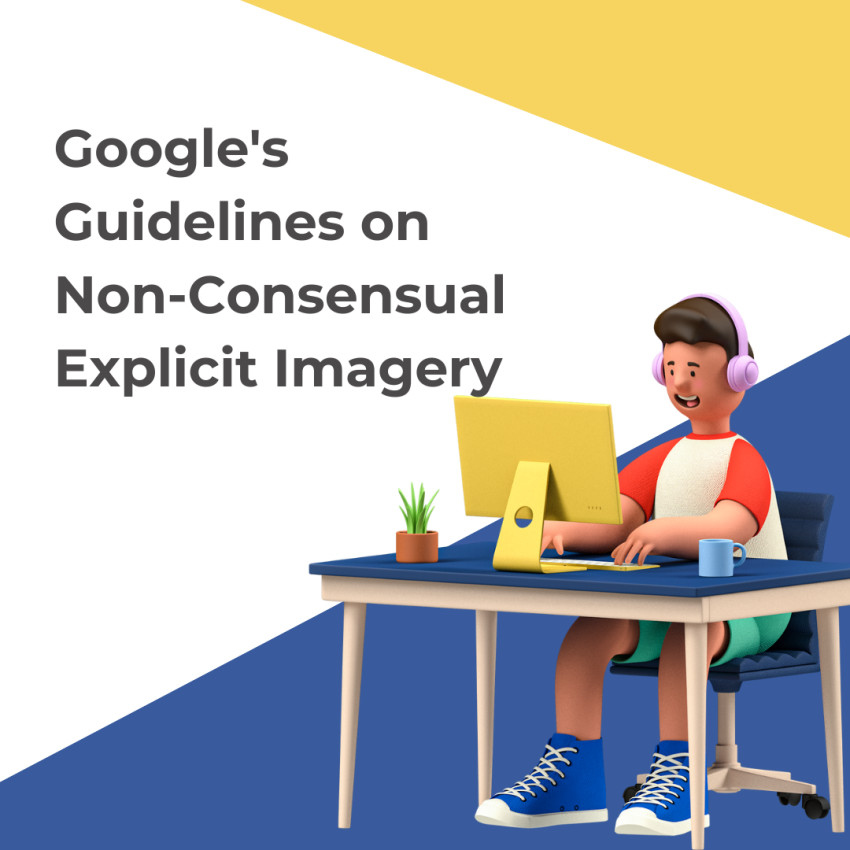
Google, as a frontrunner in the digital landscape, prioritizes user safety, reflected in its proactive measures against non-consensual explicit content. The guidelines are a testament to Google's commitment to fostering a secure online environment. For website owners, adherence to these directives is imperative not only ethically but also strategically.
Website administrators must embark on a comprehensive review of their content, swiftly removing any explicit material lacking consent. Strengthening the security apparatus of their websites is equally vital, fortifying defenses against unauthorized content uploads. The interconnected steps of content review, removal, and adherence to Google's guidelines contribute not only to ethical content dissemination but also to a positive search ranking.
In addition, community education plays a pivotal role. Website owners should create informative content, raising awareness about the implications of non-consensual explicit imagery. By promoting consent culture within their online communities, they not only contribute to a safer digital space but also bolster their websites' standing and credibility.
Understanding Google's Policies
Google's Commitment to User Safety
Google places a paramount emphasis on user safety, a commitment underscored by the implementation of policies aimed at tackling non-consensual explicit imagery. These measures reflect the search engine giant's dedication to cultivating a secure online landscape. The guidelines specifically target the prevention of the unauthorized dissemination of inappropriate content, emphasizing the importance of obtaining consent. This strategic approach underscores Google's role as a guardian of user safety, fostering an online environment where individuals can navigate without encountering explicit content without their explicit consent.
Explicit Imagery Guidelines
Google transparently defines the parameters of non-consensual explicit imagery, offering explicit directives for website owners on appropriate handling. Adherence to these guidelines is not just an ethical imperative but also pivotal for preserving a positive search ranking. By aligning with Google's stipulations, website owners not only contribute to a more ethical online landscape but also strategically position themselves for favorable search engine rankings. This dual commitment to ethical content practices and search optimization ensures a symbiotic relationship between upholding online standards and achieving a prominent online presence.
Taking Action: A Step-by-Step Guide
1. Reviewing Your Content
Initiate the process by conducting a meticulous review of your website's content. Swiftly identify and remove any explicit imagery lacking consent. This proactive approach serves as a tangible demonstration of your unwavering commitment to fostering a secure online experience for users. By promptly addressing and eliminating content that falls outside the bounds of consent, you not only adhere to ethical standards but also contribute significantly to the creation of a digital environment where users can navigate without encountering non-consensual explicit material.
2. Implementing Robust Security Measures
Elevate your website's security measures to thwart unauthorized access and prevent the potential upload of non-consensual explicit imagery. This proactive step serves a dual purpose: safeguarding your users and bolstering the perceived trustworthiness of your platform in the eyes of search engines. By implementing robust security protocols, you not only protect the integrity of your digital space but also enhance the overall credibility and reliability of your website. This fortified security framework sends a clear signal to both users and search engines that your platform prioritizes safety, contributing positively to your online reputation and search engine ranking.
Informative Content
Develop educational content to enlighten your audience about the implications of non-consensual explicit imagery. By actively raising awareness, you play a crucial role in fostering a safer online community. This initiative not only serves the broader goal of creating a secure digital space but also positions your website as a valuable resource dedicated to user education. In becoming a hub for insightful information on the consequences of non-consensual explicit content, your website becomes an advocate for responsible online behavior. This dual role of education and advocacy not only benefits your users but also establishes your platform as a trusted and valuable asset in the online landscape.
Promoting Consent Culture
Promote a culture of consent within your online community by actively encouraging discussions on consent and fostering respectful behavior. By cultivating an environment that values and emphasizes consent, you contribute significantly to the creation of a positive and respectful online community. Engage your users in meaningful conversations about the importance of consent, reinforcing the principles of respect and ethical conduct. This initiative not only enhances the overall atmosphere of your digital space but also positions your website as a proponent of responsible online behavior, further solidifying its reputation as a platform committed to user well-being and positive interaction.
In conclusion, navigating Google's guidelines on non-consensual explicit imagery demands a proactive strategy involving comprehensive content reviews, robust security measures, and community education. By aligning your website with these principles, you proactively contribute to cultivating a safer online space. Thorough content reviews ensure the prompt removal of non-consensual explicit material, while implementing robust security measures prevents unauthorized access and reinforces user trust.
Community education plays a pivotal role in creating awareness about the implications of non-consensual explicit imagery, fostering a culture of respect and responsible online behavior. This multifaceted approach not only adheres to ethical standards but also acts as a catalyst for improving your search engine ranking. As search engines prioritize user safety and positive online experiences, aligning with these principles enhances your website's credibility.
Integrating these key elements into your website management approach positions your platform strategically for sustained success in the digital landscape. The synthesis of ethical practices, security fortifications, and community engagement not only meets Google's guidelines but also establishes your website as a reliable, secure, and reputable online destination. Consider partnering with a white label SEO agency to further enhance your platform's visibility and optimize its performance in search engine rankings. By collaborating with a specialized agency, you gain access to expertise in SEO strategies, ensuring that your website not only adheres to ethical standards but also maximizes its online presence. This strategic partnership with a white label SEO agency becomes an additional layer in fortifying your digital presence, guaranteeing that your website remains a trusted and prominent destination in the competitive online landscape.



